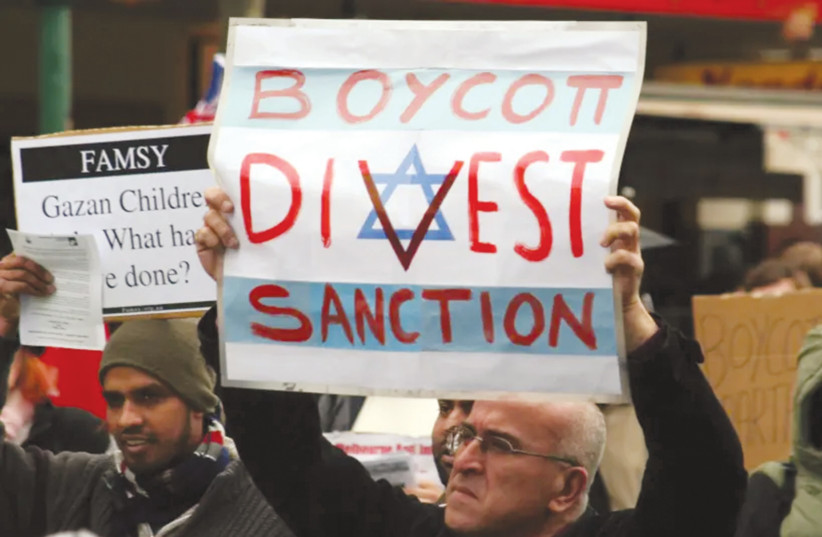An appeal for a challenge to the constitutionality of a Texas anti-Boycott, Divestment and Sanctions was rejected due to lack of standing by the US Fifth Circuit Court of Appeals, Texas Attorney General Ken Paxton announced on Tuesday.
Paxton claimed the ruling as a victory in the defense of the law, which prohibits state investment in companies that boycott Israel.
“Texas’s anti-boycott law is both constitutional and, unfortunately, increasingly necessary as the radical left becomes increasingly hostile and antagonistic toward Israel,” said Attorney General Paxton. “Though some wish to get rid of the law and see Israel fail, the State of Texas will remain firm in our commitment to stand with Israel by refusing to do business with companies that boycott the only democratic nation in the Middle East. In this case, I’m pleased to see the court recognize that the plaintiff lacked any standing to bring this challenge. Thus, our important law remains in effect, and I will continue to defend it relentlessly.”
The appellant, Haseeb Abdullah, contended that the law violated the First Amendment on free speech.
Like the lower court, the Fifth Circuit Court of Appeals ruled that Haseeb Abdullah's challenge lacked standing because he wasn't injured by the law.

As a former state and current county employee, Abdullah is entitled to two government retirement plans, and he argued that the divestment would damage these plans.
The court's decision
The court noted that the plans were fixed payments which do not hinge on market performance, and that the theory relies on possible future injury. The court said that these speculative injuries were too hypothetical to provide standing.
It was also ruled by the court that Abdullah failed to demonstrate that his First Amendment rights were damaged or violated by the law. It did not infringe on his ability so speak or express his religious beliefs. The law impacted a third party.
National Jewish Advocacy Center Director Mark Goldfeder welcomed the decision.
"Another challenge to anti-BDS laws dismissed: Texas secures a victory in the Fifth Circuit Court of Appeals while defending a law that prohibits state funds from going to companies that discriminatorily boycott Israel," Goldfeder wrote on Twitter.
On February 21, the US Supreme Court declined to review an appeal on an Arkansas anti-BDS law. Several states with anti-BDS laws had filed briefs in support of Arkansas.
